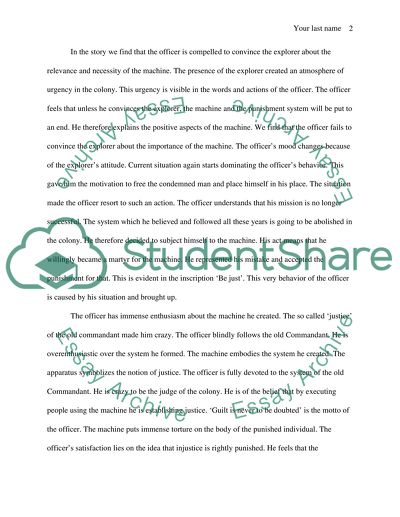Cite this document
(“The officer in story In the Penal Colony Essay Example | Topics and Well Written Essays - 1000 words”, n.d.)
Retrieved from https://studentshare.org/english/1433407-the-officer-in-story-in-the-penal-colony
Retrieved from https://studentshare.org/english/1433407-the-officer-in-story-in-the-penal-colony
(The Officer in Story In the Penal Colony Essay Example | Topics and Well Written Essays - 1000 Words)
https://studentshare.org/english/1433407-the-officer-in-story-in-the-penal-colony.
https://studentshare.org/english/1433407-the-officer-in-story-in-the-penal-colony.
“The Officer in Story In the Penal Colony Essay Example | Topics and Well Written Essays - 1000 Words”, n.d. https://studentshare.org/english/1433407-the-officer-in-story-in-the-penal-colony.


